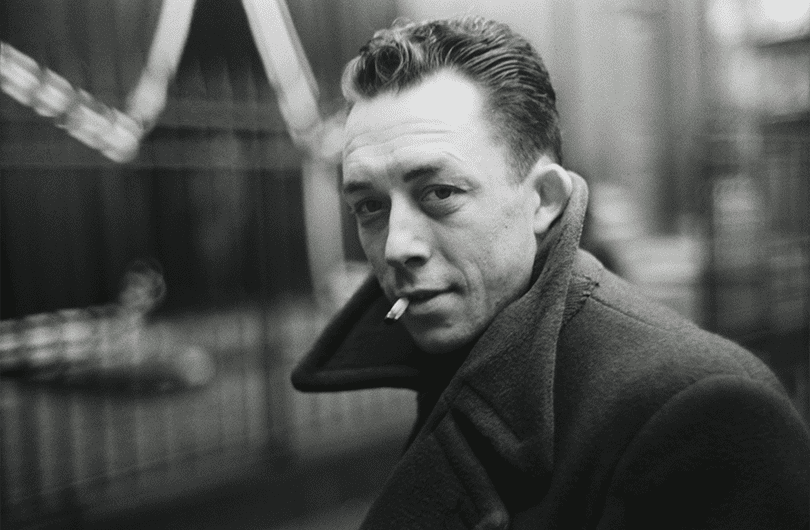When attending a play, audience members rarely get a chance to read the playwright’s notes that are found in the first pages of a script. Were you to pick up Steven Dietz’s How A Boy Falls, after the title page and the page with the list of characters, the location, the time, etc., you would find this quote:
He discovered the cruel paradox by
which we always deceive ourselves
twice about the people we love:
first to their advantage,
then to their disadvantage.
Albert Camus
“A Happy Death”
This is not the only place you will find reference to Camus in Dietz’s play. Paul Rondine, the father of a mysterious boy, knows Camus’ work well enough to quote it, “There is no country for those who despair. But I know that the sea comes before and after me, and hold my madness ready” (A Sea Close By).
Camus was a French-Algerian journalist, playwright, novelist, philosophical essayist, and Nobel laureate. His work as an existentialist (though he despised that label), was focused on moral philosophy around a variety of topics: terrorism, political violence, suicide, and the death penalty, to name a few. Based on the strength of three novels (The Stranger, The Plague, and The Fall) and two book-length philosophical essays (The Myth of Sisyphus and The Rebel), he achieved an international reputation and readership.
It was in these works that he introduced and developed the twin philosophical ideas—the concept of the Absurd and the notion of Revolt—that made him famous. These are the ideas that people immediately think of when they hear the name Albert Camus spoken today. The Absurd can be defined as a metaphysical tension or opposition that results from the presence of human consciousness—with its ever-pressing demand for order and meaning in life in an essentially meaningless and indifferent universe. The notion of Revolt refers to both a path of resolved action and a state of mind. It can take extreme forms such as terrorism or a reckless and unrestrained egoism (both of which are rejected by Camus), but basically, and in simple terms, it consists of an attitude of heroic defiance or resistance to whatever oppresses human beings. (source: Internet Encyclopedia of Philosophy)
So how is Camus connected to this play? At the core, Camus wrote about the human conscience, our internal guide to the right or wrongness of our actions. In How A Boy Falls, one character in particular cannot let go of the wrongness of their actions. Who is it? You’ll have to come see the show to find out which one!

